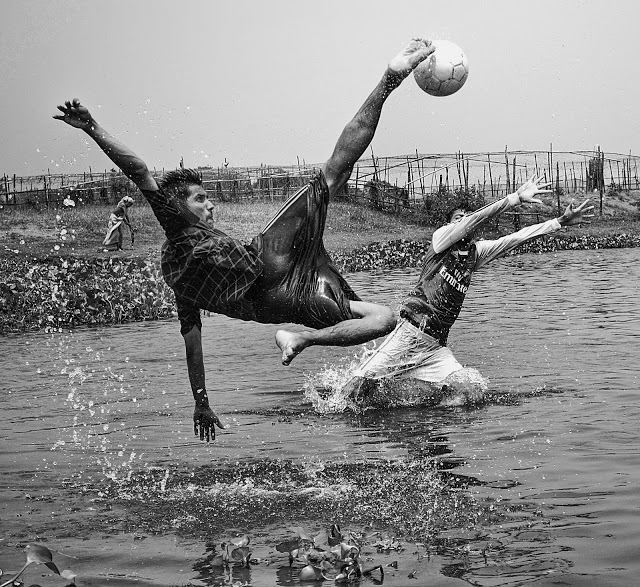It’s no secret that soccer hasn’t been one of America’s favorite pastimes.
People debate consistently about why Americans haven’t embraced the sport, and if they are going to.
While the jury is still out on the future of American soccer, one thing seems to be agreed upon: Soccer in America has been rooted in the youth. Americans are typically more engaged in the sport as children or teens than as adults.
That brings us to the World Cup.
This cup in particular seems to have attracted the interest of Americans. ESPN reports the game between the US and Portugal was the most watched soccer game by Americans in history. As the Americans move forward into the round of 16, interest is predicted to keep rising. So what is the World Cup like for a nation whose adults aren’t particularly engaged with the sport, but as children or teens may have been very much so?
It’s complicated, at least that’s what I’m learning in my Los Angeles psychotherapy practice. When we have an experience with something 10, 20, 30 years ago, and we connect to it in the present, memories of the past surface quick.
Consider a high school reunion. Most people lose track of their school mates, meeting again after many years psychologically floods the system with memories and emotions rooted in the past. Yes, these memories are always part of our psychological system, but having a reunion makes us think about them more often and brings them to the surface. The World Cup is a reunion of sorts for many.
Memories of teammates, practices, goals made/goals saved, losses/wins and coaches come up from a piece of the mind that had been closed. Physical sensory experiences rise, such as, the smell of grass, sliding into the ball, running fast, or pushing oneself to exhaustion.
Relationship memories surface, such as, how a parent approached one;s learning process of the game, or how often an old girlfriend/boyfriend came to watch one play. And under all of that are memories of how playing soccer affected one’s self esteem: what was it like to be a star, or how it felt be watching from the bench.
Just like any experience these memories contain both positive and challenging aspects. And just like any experience those memories have a range of emotional experiences that revive themselves in the present. I suggest people use this reunion as a chance to know themselves more. Why wait another four years? And why know yourself more? Examination of the self can cure boredom, existential crises, and anxiety. Here are some things to consider:
1. Soccer and Identity:
Being a part of a team really impacts the way one thinks about themselves. So many possibilities can happen when one plays soccer. How did playing soccer affect the way you think about yourself? Do you consider yourself athletic (even if you aren’t very active now), do you consider yourself a team player, and do you think you can be pushed hard (as many coaches do)?
2. Soccer and Gender:
How did soccer impact the way you think about gender? Soccer is one of those sports that appeals to both males and females. How did soccer impact the way you think of males and females? What qualities do males and females share? How are they different?
3. Soccer and Parenting:
How does your experience playing soccer affect whether or not you think your child should play? What do you fear your child will learn from playing and what do you fear they will experience if they play? And relating it to gender how does your experience of male and female soccer players affect how you view your child and what you want for them?
4. Soccer and Longings:
What do you miss about that time, and what are you grateful to be avoiding? How does this impact your participation in the World Cup? Including the way you approach your current relationships and interactions on social media?
What do you do with your answers and new knowledge? Embrace it by sharing and talking about your memories with others. Use the World Cup as a chance to reconnect to yourself, and if you’ve missed the game, use this time as a chance to remember some of your most important experiences. If you never want to kick a ball again, all the more reason to process why and to shed the past. We don’t have to leave memories in bags locked in the past; one of the finer things about being human is the ability to relate to multiple facets of ourselves, and to find ourselves intriguing.
Love elephant and want to go steady?
Sign up for our (curated) daily and weekly newsletters!
Editor: Travis May
Photo: Pixoto/Abdulla Al Rafi







Read 0 comments and reply